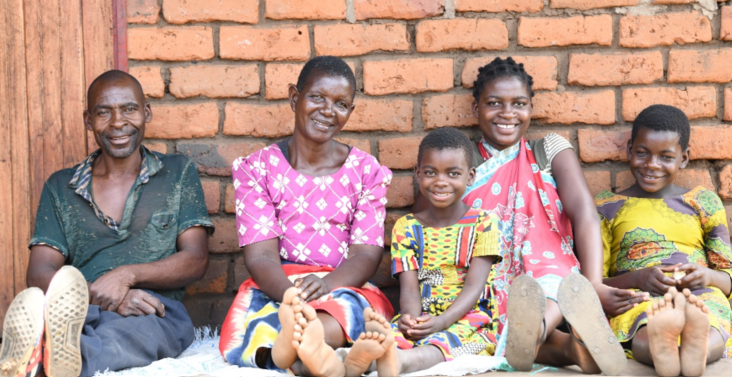Our ‘women in business’ project tackled a huge challenge head-on: lack of female land ownership in rural areas of The Gambia. A major focus of the project was to provide women with financial backing to purchase land, empowering them to transform subsistence farming into a sustainable business.
Image: Mamunding gathers crops from her small plot of land
Mamunding is just one of the women who has been empowered by our project. As a widow and the sole earner of her family of ten, Mamunding struggled to produce enough food to feed everyone, let alone sell any surplus crops to make an income. This meant it was very hard for her to buy clothes for her children, send them to school, or meet their medical needs.
Through the project, Mamunding was able to take out a loan – something that has allowed her to buy a small plot of land and access improved seeds, horticultural equipment and knowledge. Land ownership has been a turning point for her, enabling her to achieve three harvests per year and an increased income.
Now, Mamunding is able to repay her loan, take care of medical bills, send some of her children to school and provide the whole family with a balanced and nutritious diet on a daily basis. She has also been able to save a little money through our project partner’s Credit Union after each harvest – enabling her to purchase more land for her crops and employ an additional four women to work with her.
The positive impact of this project extends beyond Mamunding and her family, improving life for her community too. She has been selling her surplus crops to her neighbours at cheaper prices than they would find at the market. And as a vocal advocate for the success of this project, Mamunding believes that her story will inspire many other women to transform their subsistence farming into a thriving, successful business.
Image: Mamunding stands beside her plot of land, with her employees and one of her sons
Context:
Funded by the European Union, our ‘Inclusive Business Opportunity for Social and Economic Empowerment of Women in Upper River Region’ project increased entrepreneurship opportunities for rural women in The Gambia. From January 2018 to December 2020, we delivered the project through our longstanding partner, Wuli and Sandu Development Agency (WASDA). The project empowered over 400 women farmers through land owndership, increased crop production, climate smart practices, crop protection and business training.
Image credits: Jason Florio






